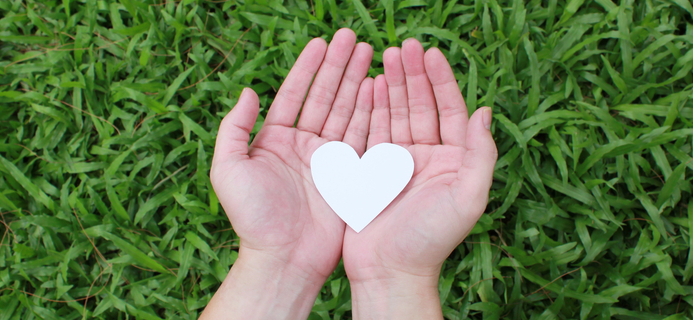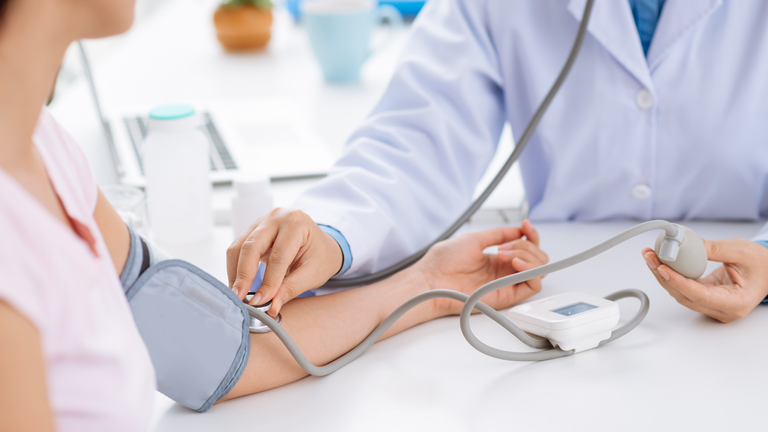For this year’s National Kindness Day, Dr David Hamilton, author of The Five Side-effects of Kindness explains how being nice is good for you
1. It’s protective against depression
Depression forces us to dwell on ourselves – on our worries, problems, and difficulties in life. It can be difficult to escape these feelings. But being kind actually takes us out of ourselves so that our attention shifts towards the needs or well being of another person.
This shift in attention helps protect against depression. Studies of thousands of people that compare the mental health of those who do regular volunteering work against those who don’t, find that symptoms of depression are much fewer in people who regularly volunteer.
MORE: ‘I can’t get over my affair’
2. It boosts happiness
Numerous studies show that being kind makes us feel happier. Kindness impacts brain chemistry, elevating levels of ‘feel-good’ neurotransmitters, and it also makes us feel satisfied that we are doing something meaningful. Together, this results in a boost to happiness. Research studies of the volunteering habits of thousands of people have concluded that more than 95% of people feel happier when they help someone. Most also report an immediate warm feeling. Other studies where the happiness of people asked to perform intentional acts of kindness was compared against the happiness of people not doing the kindnesses also concluded that kindness boosts happiness.
3. It lowers blood pressure
The connection we feel with another through an act of kindness causes our bodies to make the hormone, ‘oxytocin’. Known for its role in reproduction and breastfeeding, it is also a powerful cardiovascular hormone. It stimulates nitric oxide production in our arteries, initiating a process known as ‘vasodilation’ – widening of the arteries. This causes a net reduction in blood pressure.
Given that high blood pressure is strongly associated with risk of heart attack and stroke, kindness is therefore ‘cardioprotective’; that is, it is protective towards the cardiovascular system through its ability to reduce blood pressure. Indeed, studies that examine how people relate to each other in relationships show that those who show more loving and kind behaviours tend to have healthier arteries than those who show more hostility and contempt.
4. It boosts the immune system
The ‘Mother Theresa Effect’ describes what happens to our immune systems when we witness an act of kindness or moral beauty. In a study, scientists asked volunteers to watch a video of Mother Theresa performing acts of kindness. They had their immune systems measured before and after watching the video. Watching the acts of kindness performed by Mother Theresa, it was found, had given the volunteers’ immune systems of a boost. Other research has shown that imagining or recalling the experiences of care or compassion for others has the same effect. In these cases, it’s the emotional feeling that kindness invokes in us that impact the immune system so strongly.
MORE: Want more energy? Join our Matcha tea makeover
5. It’s an antidote to stress
A friend once told me of a time when a driver of a car had been very abusive to her after she accidentally pulled out in front of him. He was swearing at her and making angry physical gestures. It left her feeling shaken and stressed. When she reached a bridge toll a few miles down the road, she discovered that she was right in front of him. As an act of kindness, she decided to pay his toll.
The stressful feeling left her almost immediately, she explained, being replaced by a lightness and clarity of mind. A half mile up the road, the previously angry driver pulled up alongside her, rolled down his window, smiled, and mouthed the words, ‘T H A N K Y O U’. This kind of thing is reflected in real research, which finds an ‘opposite’ relationship between kindness and stress. On days that people do more kindness, they tend to have less stress, and vice versa; when they do less kindness they have more stress.
6. It slows ageing
Stress plays a major role in ageing at the biological level. Most people are familiar with the way stress can age a person; hair turning white almost overnight when a person faces great worry, lines on the face of people who feel and express a great deal of anger or hostility. Internally, stress prematurely ages the cardiovascular system, which is why stress is strongly linked with heart disease.
These effects are caused by ‘free radicals’. Stress produces them. We take anti-oxidants to try to combat them. We’re encouraged to eat foods rich in anti-oxidants, like green vegetables, dark chocolate, cinnamon, for example, and to take drinks containing them, like pomegranate juice or green tea. It’s also why some modern face creams contain anti-oxidants, hoping to neutralise free radicals at the sites of apparent ageing. Since kindness is an antidote to stress, it ensures that there’s less free radicals in the body and thus slows the ageing caused by stress and unhealthy lifestyle.
7. It tones the nervous system
The vagus nerve plays a very important role in maintaining the health of the body. It works the parasympathetic branch of the autonomic nervous system. It controls the rest, digest, and regenerate mode in the body and helps ensure a balance between all of our organs by providing constant feedback to the brain. Vagal tone is a measure of how well the vagus nerve does this. You can think of it as akin to muscle tone, which reflects the fitness and strength of your body, except that vagal tone reflects the fitness of the nervous system. Kindness (and compassion) have been shown to actually increase vagal tone. When people practice kindness meditations, for example, where they reflect upon kindness and generate warm feelings towards others, their vagal tone tends to increase. In this way, kindness tones the nervous system.
Dr David Hamilton worked in the pharmaceutical industry for four years after gaining his PhD. Now a bestselling author, he travels the world offering workshops to help people understand the power of the mind on the body. The Five Side-effects of Kindness: This Book Will Make You Feel Better, Be Happier & Live Longer, David R. Hamilton PhD, Hay House UK, £10.99 will be available from 7th February 2017.
MORE: How breast cancer saved me from workaholism
MORE: What your period says about your health
Like this article? Sign up to our newsletter to get more articles like this delivered straight to your inbox.




























































